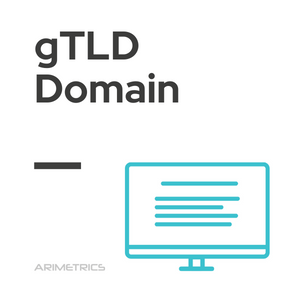Definition:

gTLD domain types
The gTLD domains are divided into several categories, each with its own characteristics and uses:
Generic
These are the most common and versatile domains, used by a wide range of entities. Examples include:
- .com – Used primarily for commercial sites.
- .net – Originally intended for networks, now for general use.
- .org – Commonly used by non-profit organizations.
- .info – Ideal for informative sites.
Restricted generics
These domains have restrictions on their use to ensure that they are used appropriately. Some examples are:
- .biz – Intended for business.
- .name – Designed for personal use.
- .pro – Exclusively for certified professionals.
Sponsored
These domains are managed by private organizations or government agencies for a specific purpose. Examples include:
- .cat – Created to promote Catalan culture and language.
Other gTLD domains
There are additional gTLD domains that are intended for specific sectors, such as:
- .edu – Exclusively for educational institutions.
- .gob – Used by government entities.
- .mil – Reserved for military organizations.
Advantages of using gTLDs
Choosing the right gTLD can offer multiple benefits. First, a relevant gTLD can significantly improve credibility and brand recognition, making it easier for users to quickly identify the purpose or nature of a website. This can increase user trust and click-through rate, which is crucial to the success of an online business.
In addition, some gTLDs can have a positive impact on SEO, as certain search engines may consider the relevance of the domain in relation to user searches. For example, an educational website with a “.edu” domain may be perceived as more authoritative in education-related contexts.
Considerations for choosing a gTLD
When selecting a gTLD, it is important to consider several key factors. The target audience and purpose of the website are critical in determining which gTLD is most appropriate. For example, a website targeting a global audience may benefit from a “.com” while a niche site may opt for a more specific gTLD.
It is also important to consider registration requirements, as some gTLDs may have restrictions that require additional verification or specific documentation. In addition, user perception plays a crucial role; choosing a gTLD that resonates with the public can influence how the brand or organization is perceived.
Finally, it is advisable to investigate how the gTLD might affect SEO, as some extensions may offer advantages in terms of search engine visibility.
